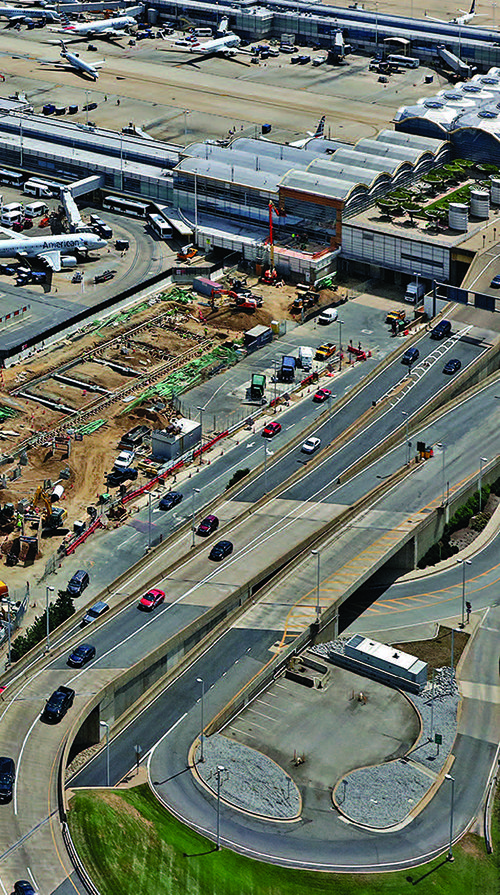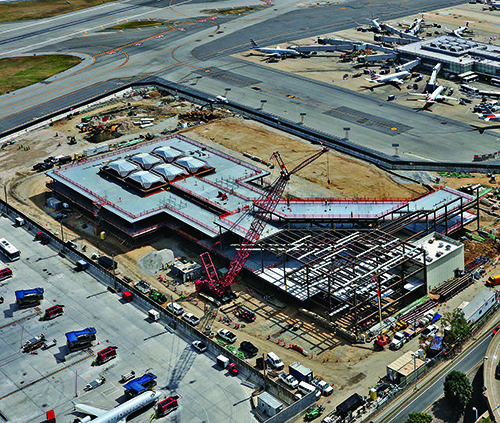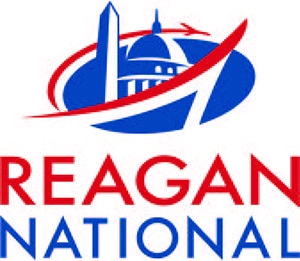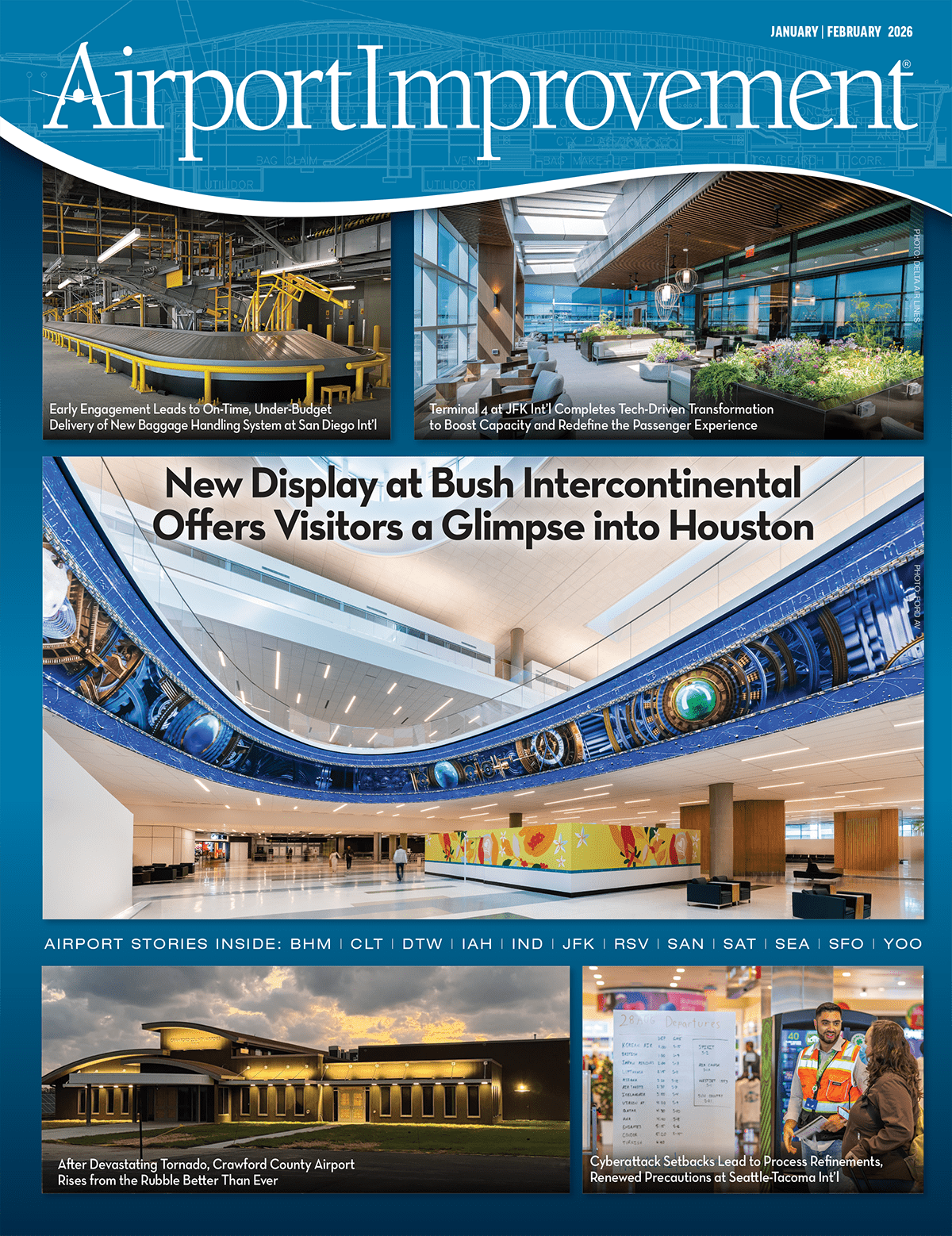With structural steel still being erected for the $1 billion terminal expansion/renovation at Reagan National Airport (DCA), a new concessions lineup is already in the works. Ten concessionaires are being selected this fall for the new facility that is scheduled to open in 2021.
With structural steel still being erected for the $1 billion terminal expansion/renovation at Reagan National Airport (DCA), a new concessions lineup is already in the works. Ten concessionaires are being selected this fall for the new facility that is scheduled to open in 2021.
The Metropolitan Washington Airports Authority hopes to award leases in December and announce new retail and food/beverage tenants in January or February. New tenants are expected to begin building out their spaces next fall.
The concessions programs at DCA and Washington Dulles International Airport are managed by MarketPlace Development, a Boston-based real estate retail manager. In July, the company issued a call for proposals seeking tenants to fill 10 concessions slots, totaling 13,900 square feet, in the 225,000-square-foot concourse being built at DCA. Proposals were due on Sept. 13.
|
Project: New Concessions Location: Reagan National Airport Owner: Metropolitan Washington Airports Authority Project Scope: 13,900 sq. ft.; 10 spaces in the new concourse building Anticipated Timeline: Leases awarded in Dec.; tenant build-outs slated to begin in fall 2020 Concessions Program Manager: MarketPlace Development Tenant Build-out: Each vendor will select its own team Overarching Program: $1 billion Project Journey, slated for completion in 2021 Project Journey Design: AIR Alliance (AECOM & PGAL joint venture) Construction: Turner Construction |
The new concourse, a key part of the airport’s $1 billion Project Journey initiative, is being built on the north end of the existing Terminal C and will replace Gate 35X. Currently, passengers departing from Gate 35X ride a shuttle bus to board aircraft parked on the apron. The new concourse will have 14 gates with an extensive seating area. Beyond new concessions, amenities may include a private room for nursing mothers and a pet relief area.
While there will be a walkway connecting the new concourse to the existing terminal, DCA does not plan to add any retail—storefronts or kiosks—in this space.
Additional retail space will be created within the new passenger security checkpoints. Two structures, totaling 50,000 square feet each, are being built over the arrivals roadway on the front side of the airport. This $263 million addition will allow TSA to move its three current security checkpoints from the concourses deep within the airport to the front of the facility. In early October, TSA was still determining how many checkpoint lanes to add to the current 20.
Deven Judd, director of customer and concession development for the Airports Authority, reports that there will be two pre-security concessions. During construction, an existing Starbucks on the Ticketing level will be closed, but the space will reopen once the project is completed.
With DCA’s current layout, the principal hall that connects all three concourses is filled with concessionaires that are accessible to the general public. Known as National Hall, the area functions like a public mall.
By shifting the security lanes from the head of each pier into the new space, DCA will regain valuable space adjacent to National Hall. Plans for this area are pending, but options include larger restrooms, nursing mother rooms, pet service areas, entertainment features, more seating and new concessions space.
 “A number of airport departments need to come together and define what the space may look like,” says Judd.
“A number of airport departments need to come together and define what the space may look like,” says Judd.
Two retail locations—a Capital One bank branch and a Brooks Brothers clothing store—were closed to create the corridor linking National Hall to the new security checkpoints. No other existing retailers in National Hall will be relocated or closed by the construction work, notes Judd.
The National Hall concessionaire leases expire in 2021, 2022 and 2023.
Post-Checkpoint Shift
The last major construction project at DCA occurred in 1997—before the creation of TSA and associated new security requirements. Back then, the facility was designed to accommodate 15 million passengers. Now, nearly 24 million passengers pass through security checkpoints that virtually hug the gates.
While the new concessions space in the new concourse will add welcome options for travelers, the relocation of TSA security checkpoints will change the entire tone of National Hall.
Currently, many concessions are pre-security. While this allows the general public to use them, it also causes passengers who are worried about getting through the TSA checkpoint to reduce the amount of time they spend shopping and dining in National Hall. “Sometimes National Hall can be busy, with some passengers waiting in security lines and others trying to shop,” Judd relates. Once through the security checkpoints, passengers are now “stuck in their concourse” without access to shopping or food/beverage options in National Hall or in other concourses.
After National Hall is reconfigured to be post-security, Judd predicts that passengers will spend more time and money in shops and restaurants.
Passengers will no longer have to monitor their watches and worry about how soon they need to get into the security lines, explains Kathleen T. Verret, MarketPlace’s vice president for the Washington region. Once travelers clear their TSA checkpoint, they will be free to roam the airport. “I think it will be a really great experience for the customers as well as the tenants,” says Verret. “The tenants are all excited—they expect more business. We think they will really be able to thrive in the new post-security environment.”
New Tenants
The emphasis will be on food and beverages in the new concourse. DCA is seeking café, burger, pizza, sandwich and coffee operators. Six food vendors will be complemented by two news shops, an electronics store and a gifts or clothing retailer.
MarketPlace is working with DCA to prepare a merchandise plan based on customer feedback and current industry trends. Verret notes that electronics stores continue to be sought-after retail offerings, and chef-inspired restaurants are still trending on the food/beverage side.
 The development team is reserving a 5,000-square-foot block of space in the new concourse for a restaurant to serve multiple needs: sit-down service, grab-and-go, and coffee/pastry service. “We can bring in a brand that can do all of that because we now have the space,” Verret explains.
The development team is reserving a 5,000-square-foot block of space in the new concourse for a restaurant to serve multiple needs: sit-down service, grab-and-go, and coffee/pastry service. “We can bring in a brand that can do all of that because we now have the space,” Verret explains.
Judd notes that the airport wants new concessions to highlight the Washington, D.C., area. That “sense of place aspect” could mean local concepts, local operators or restaurants serving local farm-to-table selections, he explains. That said, neither DCA nor MarketPlace have inserted a pre-conceived notion of exactly what “local” is into the bidding specifications. “We are open to looking at all types of proposals whether from the local area, the region or even national brands,” says Judd.
Currently, about 40% of the concessions contracts are with local companies.
In the request for proposals, MarketPlace encouraged all prospective tenants to put forth the “most competitive rental rates they are comfortable with.”
Baseline rent is outlined in the request for proposals. Tenants pay the airport a percentage of their sales as rent. MarketPlace earns its management fee based on total sales. After the company’s current contract expires in December 2021, the airport will solicit competitive bids for its new concessions management contract.

Verret notes that special consideration will not be given to existing tenants that want to open additional locations in the new space. “We want to give the travelers a choice,” she explains. “We don’t want the airport to have just one coffee brand. We want variety. In looking for the ‘better burger’ concept (one of the programed restaurant spaces), we may get six to eight proposals for a burger concept. The decision will be based strictly on the best proposals for that space.”
In late September, MarketPlace was evaluating proposals and preparing to make recommendations to the Airports Authority. Both MarketPlace and the Airports Authority declined to divulge how many proposals were received by the September deadline. Typically, the company receives at least two proposals for each space, says Verret.
Most food/beverage providers will operate with a 10-year lease; retail stores will be offered seven-year leases.


 facts&figures
facts&figures

